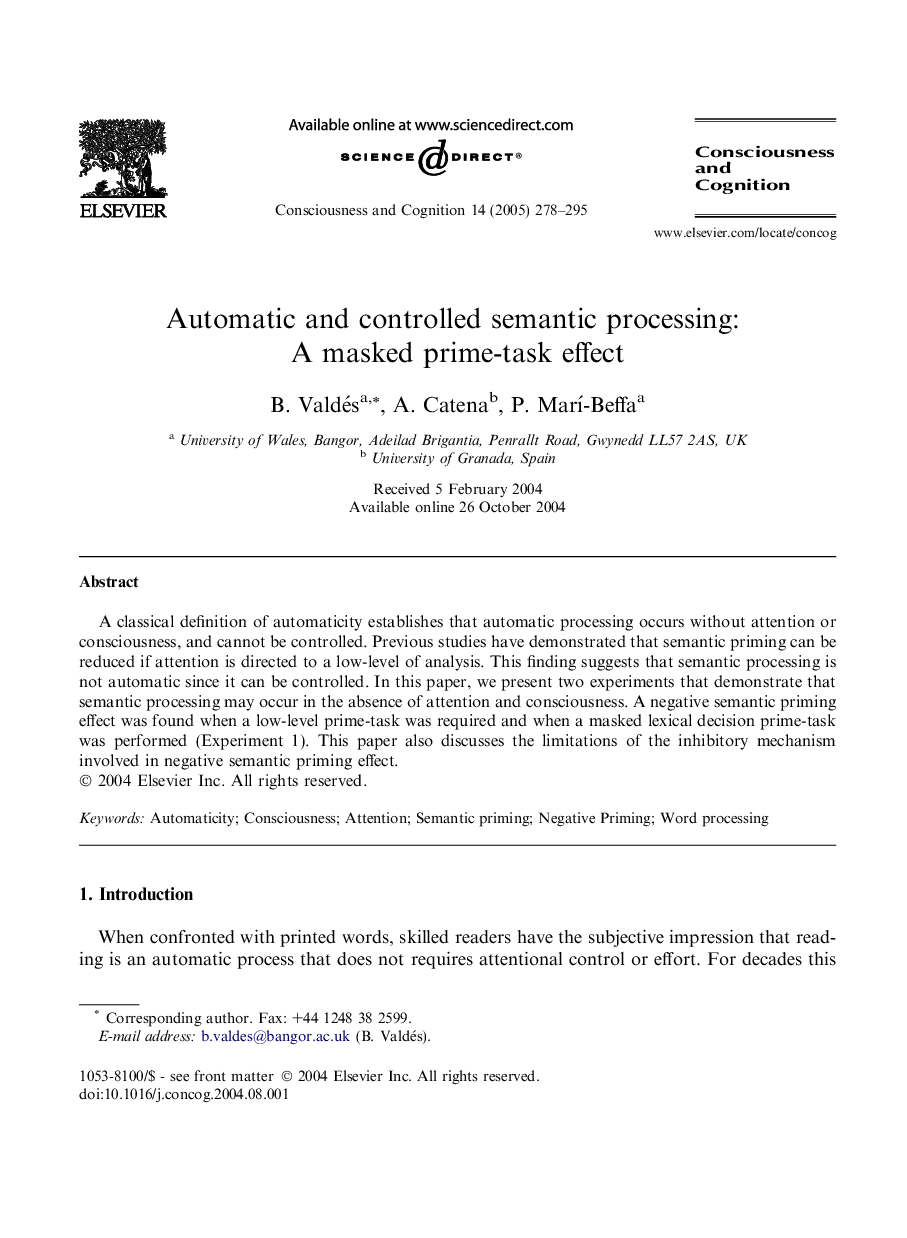| Article ID | Journal | Published Year | Pages | File Type |
|---|---|---|---|---|
| 10458917 | Consciousness and Cognition | 2005 | 18 Pages |
Abstract
A classical definition of automaticity establishes that automatic processing occurs without attention or consciousness, and cannot be controlled. Previous studies have demonstrated that semantic priming can be reduced if attention is directed to a low-level of analysis. This finding suggests that semantic processing is not automatic since it can be controlled. In this paper, we present two experiments that demonstrate that semantic processing may occur in the absence of attention and consciousness. A negative semantic priming effect was found when a low-level prime-task was required and when a masked lexical decision prime-task was performed (Experiment 1). This paper also discusses the limitations of the inhibitory mechanism involved in negative semantic priming effect.
Related Topics
Life Sciences
Neuroscience
Cognitive Neuroscience
Authors
B. Valdés, A. Catena, P. MarÃ-Beffa,
